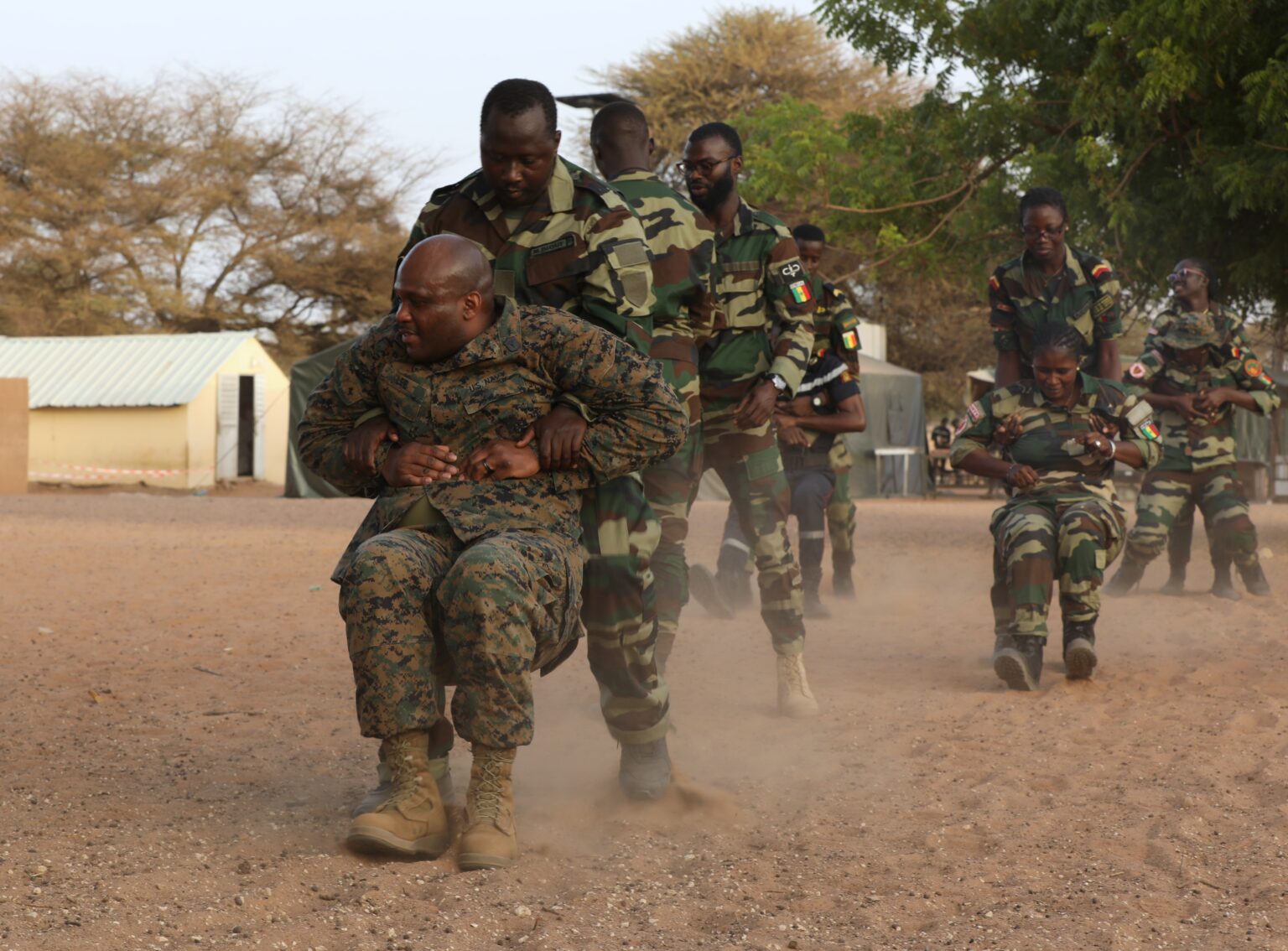By Pearl Matibe in Washington DC
From the arid Sahara to the bustling Gulf of Guinea, Africa has recently witnessed a flurry of multinational military exercises aimed at addressing the continent’s diverse security landscape. These exercises not only enhance operational capabilities but also foster strategic partnerships and regional cooperation, underscoring the interconnected nature of threats in today’s globalized world.
One such military exercise, Exercise Flintlock 2024, which ended on 24 May, has been hailed by U.S. Pentagon Press Secretary Air Force Major General Pat Ryder as “U.S. Africa Command’s premiere and largest annual special operations forces exercise that works to strengthen combined partner force collaboration in Africa alongside international and NATO international special operations forces.” Held annually since 2005, Flintlock focuses on security, counterterrorism, and military humanitarian support, with this year’s exercise taking place in the Sahel region.
For Kenya, a pivotal player in regional security, participating in these multinational military exercises holds immense significance. African Lion 2024 provides an invaluable opportunity for the Kenyan armed forces to enhance their operational readiness, share expertise, and foster interoperability with allied nations, bolstering the country’s counterterrorism efforts and its role in promoting stability within the region.
Exercise Obangame Express 2024, with its focus on maritime security in the Gulf of Guinea, is crucial for safeguarding the maritime trade routes that are the lifeblood of Kenya’s economy and that of its East African neighbors. Moreover, Exercise Flintlock 2024, with its emphasis on security, counterterrorism, and military humanitarian support, resonates deeply with Kenya’s ongoing battle against al-Shabaab and other terrorist groups operating in the region.
Through these exercises, Kenya not only enhances its operational capabilities but also strengthens its strategic partnerships, fostering a collective resolve to address the interconnected security challenges that transcend national borders.
The significance of these exercises extends beyond combat readiness, as highlighted by the experiences of participants. For Ghana Armed Forces Major Senyo Dzamefe, a battery commander of the 60th Artillery Regiment, the military exercise known as African Lion 2024 (AL24), which concluded on 31 May, proved to be a “profound learning experience.” He emphasized, “It was a real eye-opener for us. So getting the new perspective of how artillery is done, how ancillary operations are conducted, and then artillery supporting, using the fires to support internal security operations, which is a very difficult thing.”
AL24, marking its 20th anniversary, stands out as U.S. Africa Command’s largest annual combined, joint exercise, involving over 8,100 participants from 27 countries, including NATO contingents. The comprehensive programming, ranging from high mobility artillery rocket systems (HIMARS) exercises to medical treatment missions, showcased the breadth of capabilities and the commitment to operational readiness.
Another exercise, Obangame Express 2024, facilitated by U.S. Naval Forces Africa/U.S. 6th Fleet, focused on enhancing maritime security in the Gulf of Guinea, a region of vital economic importance for many African nations. By fostering collaboration among regional and international partners, the exercise aimed to deter counter-piracy, counter illicit trafficking, and other maritime threats, ensuring a safer maritime environment crucial for economic stability.
The spirit of unity and collaboration was echoed by Machinery Technician Seaman Apprentice Erica Davis of the Liberia National Coast Guard, who participated in Exercise Obangame Express 2024, which was conducted from 6-17 May. “It is important for all of these countries to come together because we are all Africans and we are all humans,” she said. “It is good to share ideas from country to country so we can get better together.”
These exercises not only enhance operational readiness but also serve as platforms for sharing best practices, fostering trust, and nurturing long-term partnerships. As Africa grapples with threats such as terrorism, cross-border conflicts, and maritime insecurity, the commitment to regional security and the recognition of the interconnected nature of these challenges are paramount for ensuring stability and prosperity.
While the exercises demonstrate the resolve of participating nations, they also highlight the complex security challenges facing the continent. From the vast expanses of the Sahara to the bustling ports of the Gulf of Guinea, Africa’s security landscape demands a multifaceted approach that combines military might with diplomacy, development, and regional cooperation.
As the African continent continues to navigate these intricate security landscapes, the importance of multinational collaboration cannot be overstated. It is through such collaborative efforts that Africa can forge a path toward a more secure and prosperous future for all its people while ensuring that the exercises translate into tangible improvements in security and stability on the ground.
Pearl Matibe is a Washington, DC-based White House Correspondent, and media commentator with expertise in U.S. foreign policy and international security. You may follow her on Twitter: @PearlMatibe



